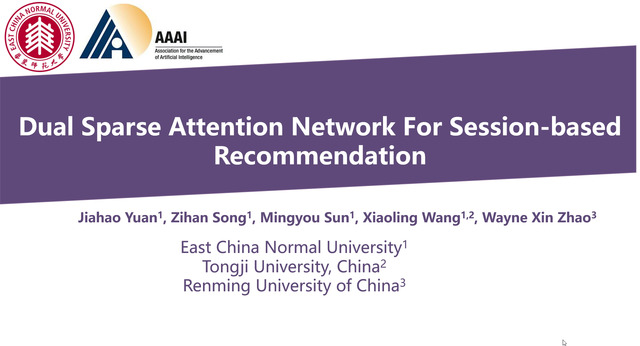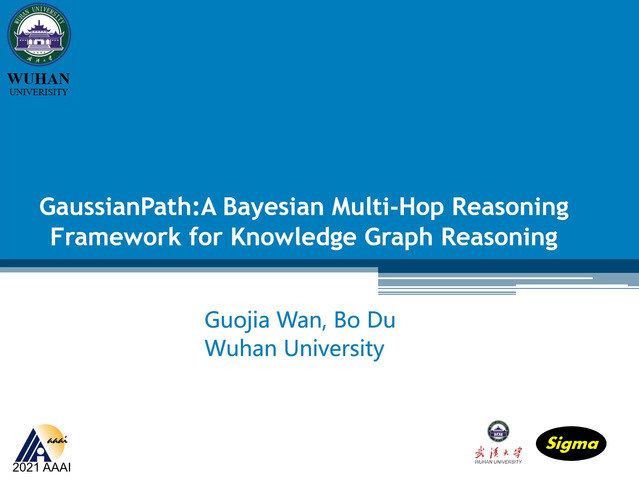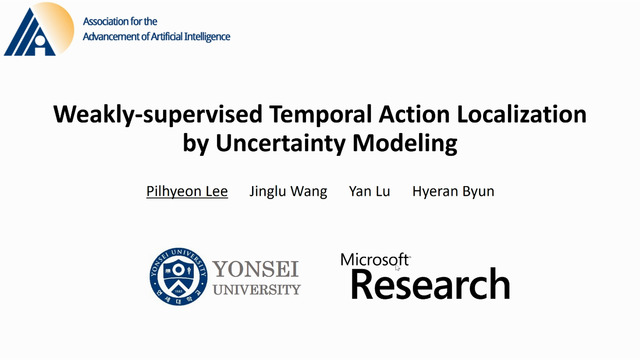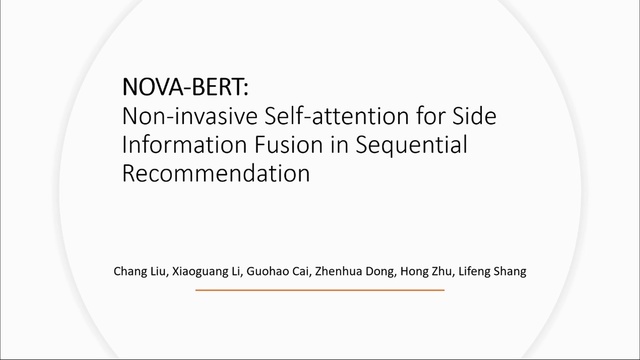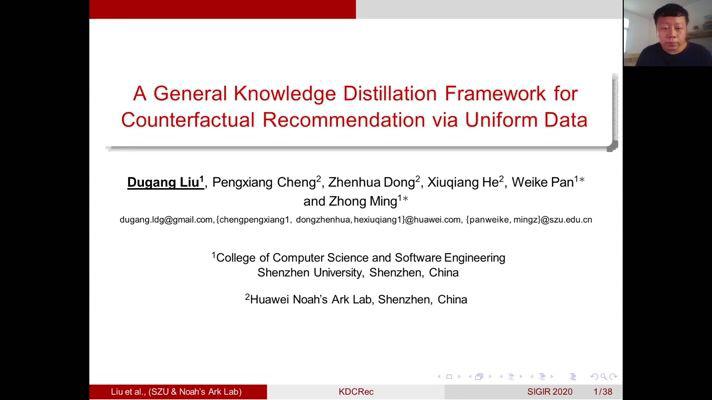Abstract:
Sequential recommendation aims to predict users’ future behaviors given their historical interactions. However, due to the randomness and diversity of a user’s behaviors, not all historical items are informative to tell his/her next choice. It is obvious that identifying relevant items and extracting meaningful sequential patterns are necessary for a better recommendation. Unfortunately, few works have focused on this sequence denoising process. In this paper, we propose a PatteRn-enhanced ContrAstive Policy Learning Network (RAP for short) for sequential recommendation, RAP formalizes the denoising problem in the form of Markov Decision Process (MDP), and sample actions for each item to determine whether it is relevant with the target item. To tackle the lack of relevance supervision, RAP fuses a series of mined sequential patterns into the policy learning process, which work as a prior knowledge to guide the denoising process. After that, RAP splits the initial item sequence into two disjoint subsequences: a positive subsequence and a negative subsequence. At this, a novel contrastive learning mechanism is introduced to guide the sequence denoising and achieve preference estimation from the positive subsequence simultaneously. Extensive experiments on four public real-world datasets demonstrate the effectiveness of our approach for sequential recommendation.


